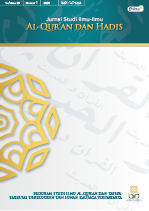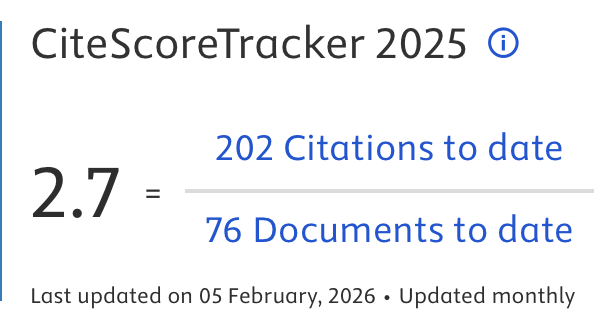The Understanding of Hadith Sadaqah and Its Implementation on Social Empowerment: A Research on Jum’ah Berkah Tradition in Wonogiri Society
DOI:
https://doi.org/10.14421/qh.2022.2301-04Keywords:
Hadith Sadaqah, Jum’ah Berkah, Gardu Wonogiri, Social EmpowermentAbstract
Gerdu is one of the neighborhoods located in the middle of the Wonogiri sub-district, Wonogiri Regency. Wonogiri has the title as the city of 'abangan'. However, the Gerdu community is enthusiastic in carrying out almsgiving activities on Friday blessing. This raises the question of how the community's understanding is related to the alms hadith (Hadith Sadaqah) and the community's motivations in carrying out almsgiving activities on Friday blessing. This research is a qualitative research using a phenomenological approach. Data analysis technique went through three stages, namely orientation, reduction and selection. The result of this study is that the understanding and implementation of the Gerdu community in the Wonogiri sub-district is carried out correctly and is in accordance with the Hadith. The Gerdu community in Wonogiri sub-district interprets alms as an activity to share their assets with families and people in need. The Gerdu community of Wonogiri sub-district already knows that the law of alms is a sunnah to be implemented, but for the Gerdu community of Wonogiri sub-district who are already accustomed to giving alms, they feel themselves obliged to give alms. While the implementation of the sadaqah hadith in the form of food alms in almsgiving activities on Friday blessings. As for the motivation of the Gerdu community in Wonogiri sub-district, there are two motivations, namely internal motivation and external motivation. The internal motivation is that there is a feeling of happiness when giving alms, a feeling of being stuck when not giving alms, people's beliefs about alms bringing sustenance, giving charity for da'wah bil hal. External motivation includes the availability of property owned, motivated from others, wanting to achieve husnul khotimah, understanding the true nature of property, and making it easier in all affairs.
References
Aisyah, Siti. Jum’at Berkah dan Pemahaman Sadaqah Perspektif Hadits di masjid Lingkungan Gerdu, April 28, 2021.
Ali, Bagenda. Jika Sadaqah Menjadi Lifestyle. Yogyakarta: CV Budi Utama, 2020.
Bukhari, Muhammad bin Isma’il. Al-Jami’ Al-Ṣaḥīḥ. Beirut: Dar Ibn Katsir, 1987.
Dalimuthe, Reza Pahlevi. 100 Kesalahan Dalam Sadaqah. Jakarta: Agromedia Pustaka, 2010.
Fathurrohman, Muhammad. Prinsip Dan Tahapan Pendidikan Isam Kajian Telaah Tafsir Alquran. Yogyakarta: Garudhawaca, 2017.
Himawan, Candra, and Neti Suriana. Sadaqah Hidup Berkah Rezeki Melimpah. Yogyakarta: Pustaka Albana, 2013.
Ibnu Majah. Sunan Ibni Majah. Beirut: Dar al-Fikr, n.d.
Ibnu Mikam, Komarudin. Rahasia & Keutamaan Hari Jum’at. Jakarta: Qultum Media, 2007.
Jannah, Raudhatul. Jum’at Berkah dan Pemahaman Sadaqah Perspektif Hadits di masjid Lingkungan Gerdu, April 29, 2021.
Mardjono, Sarjo. Jum’at Berkah dan Pemahaman Sadaqah Perspektif Hadits di masjid Lingkungan Gerdu, April 29, 2021.
Mariyana, Dewi, Naan, and Tamami. “Sadaqah Sebagai Kekuatan Spiritual: Studi Kasus Pada Komunitas Yuk Sadaqah Bandung.” Jurnal Syifa al Qulub 4, no. 1 (July 2019).
Melina, Mita. “Pandangan Masyarakat Terhadap Praktik Pembacaan Al Qur’an Dalam Tradisi Siklus Hidup Manusia.” Skripsi, Institut Agama Islam Negeri Salatiga, 2021.
Munir, and Wahyu Ilaihi. Manajemen Dakwah. Jakarta: Kencana Prenada Media Group, 2006.
Muslim bin al-Hajjaj, Abi Husain. Shahih Muslim. Beirut: Darul al Kothob al Ilmiyah, 1971.
Naja, Daeng. Bankir Syariah. Jawa Timur: Uwais Inspirasi Indonesia, 2019.
Nikmatullah. “Review Buku Dalam Kajian Living Hadits Dialektika Teks Dan Konteks.” Jurnal Holistic al Hadits 1, no. 2 (December 2015).
Putra Dauly, Haidar. Pendidikan Islam Di Indonesia. Jakarta: Kencana, 2019.
Qudsi, Saifudin Zuhri. “Living Hadits Genealogi Teori Dan Aplikasi.” Jurnal Living Hadits 1, no. 1 (May 2016).
Rafi, Muhammad. “Tradisi Sadaqah Nasi Bungkus Hari Jum’at Oleh Komunitas Sijum Amuntai.” Jurnal Living Hadits IV, no. 1 (May 2019).
Sariani. Jum’at Berkah dan Pemahaman Sadaqah Perspektif Hadits di masjid Lingkungan Gerdu, April 29, 2021.
Silvia, Anis. Jum’at Berkah dan Pemahaman Sadaqah Perspektif Hadits di masjid Lingkungan Gerdu, April 30, 2021.
Sopuroh, Siti. “Pemahaman Dan Implementasi Hadits-Hadits Keutamaan Hari Jum’at Pada Masyarakat Desa Keraton Suranenggala Cirebon.” Skripsi, Universitas Islam Negeri Walisongo, 2017.
Sugiarto, Eko. Menyusun Proposal Penelitian Kualitatif Skripri Dan Tesis. Yogyakarta: Suaka Media, 2015.
Sugiyem. Jum’at Berkah dan Pemahaman Sadaqah Perspektif Hadits di masjid Lingkungan Gerdu, April 29, 2021.
Sukeni. Jum’at Berkah dan Pemahaman Sadaqah Perspektif Hadits di masjid Lingkungan Gerdu, n.d.
Syaibani, Ahmad bin Ahmad bin Muhammad bin Hanbal. Musnad Imam Ahmad Bin Hanbal. Beirut: Al Maktab al Islami, n.d.
Tirmidzi, Muhammad bin ’Isa. Jami’ al-Tirmidzi. Beirut: Dar Ihya al-Turots al-’Arobiy, n.d.
Yasuin, Fahmi. “Tradisi Zuwaj Masyarakat Kota Semarang Studi Living Hadits.” Tesis, Universitas Islam Negeri Walisongo, 2018.
Yurwanto, Yedi. “Memaknai Pesan Spiritual Ajaran Agama Dalam Membangun Karakter Kesalehan Sosial.” Jurnal Sosioteknologi 13, no. 1 (2014).
Sakat, Ahamad Asmadi, Mohamad Zaid, Mohd Zin, Mohd Arip Kasmo, Mazlan Ibrahim, Muhd Najib, Abdul Kadir, Fadlan Mohd Othman, Jaffary Awang, and Latifah Abdul Majid. “Implementation of Hadith Methodology In Translated Literature of Sheikh Daud Al-.” Advances in Natural and Applied Sciences 5, no. 5 (2011).
Winarno, Muh Zuhri, Agus Waluyo, and Noor Malihah. “Design and Implementation of the Hadith Search System Based on Android.” International Journal of Recent Technology and Engineering 7, no. 6 (2019).
Downloads
Published
Issue
Section
License
Publishing your paper with Jurnal Studi Ilmu-ilmu al-Qur'an dan Hadis means that the author or authors retain the copyright in the paper. Jurnal Studi Ilmu-ilmu al-Qur'an dan Hadis uses license CC-BY-NC-ND or an equivalent license as the optimal license for the publication, distribution, use, and reuse of scholarly works. This license permits anyone to copy and redistribute the material in any medium or format and must give appropriate credit, provide a link to the license, and indicate if changes were made. If you remix, translate, transform or build upon the material you may use it for private use only and not for distribution. Jurnal Studi Ilmu-ilmu al-Qur'an dan Hadis granted an exclusive non-commercial reuse license by the author(s), but the author(s) are able to put the paper onto a website, distribute it to colleagues, give it to students, use it in your thesis, etc, so long as the use is not directed at a commercial advantage or toward private monetary gain. The author(s) can reuse the figures and tables and other information contained in their paper published by Jurnal Studi Ilmu-ilmu al-Qur'an dan Hadis in future papers or work without having to ask anyone for permission, provided that the figures, tables, or other information that is included in the new paper or work properly references the published paper as the source of the figures, tables or other information, and the new paper or work is not direct at a private monetary gain or commercial advantage.
Jurnal Studi Ilmu-ilmu al-Qur'an dan Hadis journal Open Acces articles are distrubuted under the Creative Commons Attribution-NonCommercial-NoDerivatives 4.0 International (CC BY-NC-ND 4.0). Article can be read, copy and redistribute the material ini any medium or format under the following conditions:
Attribution — You must give appropriate credit, provide a link to the license, and indicate if changes were made. You may do so in any reasonable manner, but not in any way that suggests the licensor endorses you or your use.
NonCommercial — You may not use the material for commercial purposes.
NoDerivatives — If you remix, transform, or build upon the material, you may not distribute the modified material.











